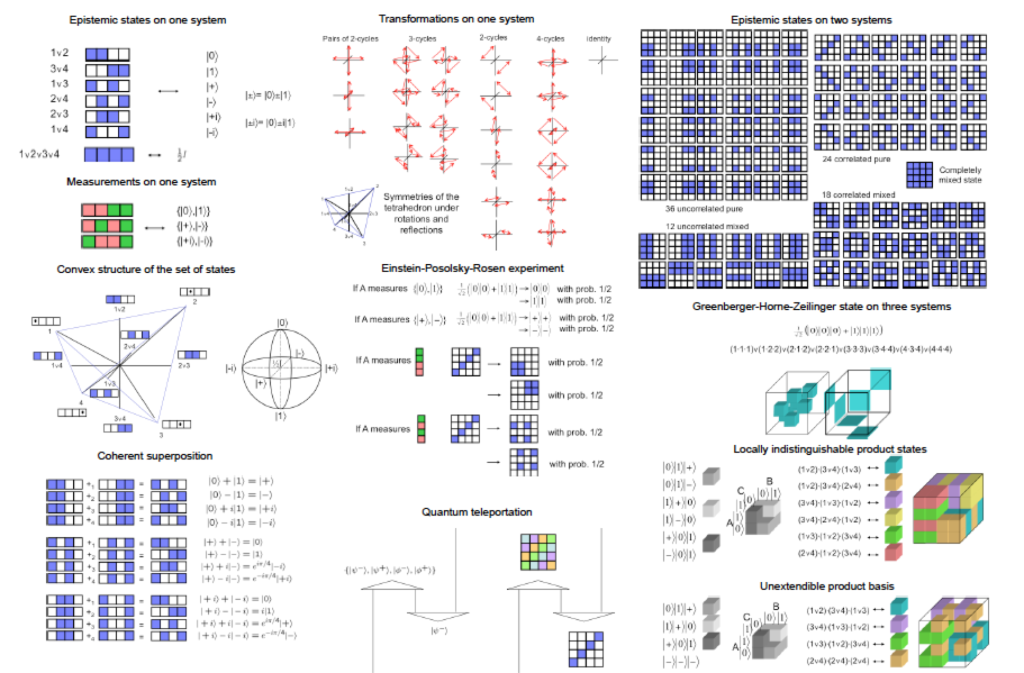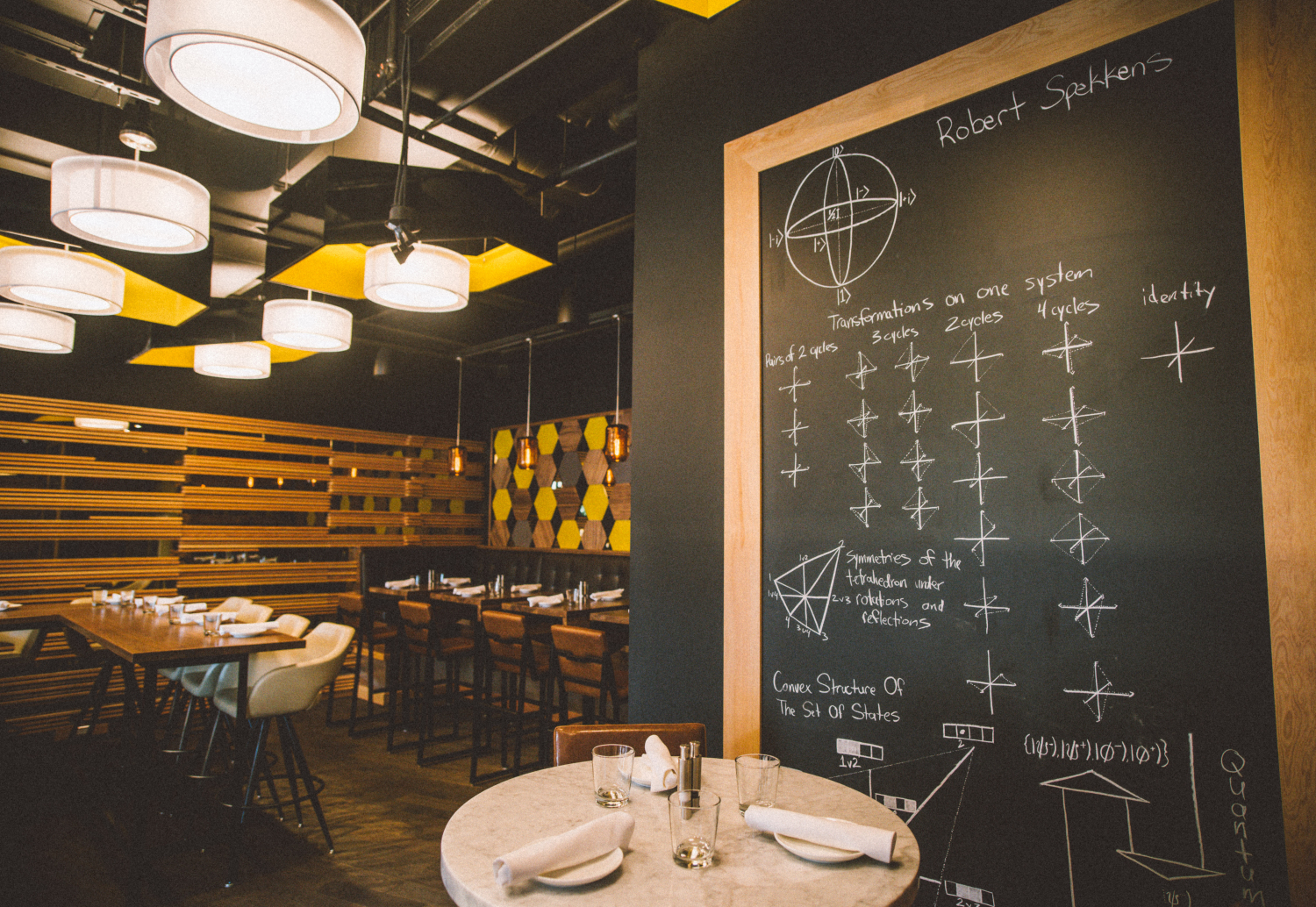The ‘proof’ is in the equation! Proof will be highlighting Waterloo’s brightest and most talented in our Equation Series. You’ll notice changes to our restaurant chalkboard as we update it each month to feature a new genius in our area.
First up is the Robert Spekkens Theory, by Robert Spekkens himself.
-
What is your theory about?
This theory answers the question:
How would the world appear to us if every elementary system could occupy one of many possible physical states, but there was a fundamental limit on how much we could come to know about which physical state a system is in at any given time?
Observers in such a world face a similar plight to the prisoners in Plato’s famous allegory of the cave, who can only see the two-dimensional shadows of three-dimensional objects. It turns out that such a world would appear to us in many, but not all, respects to obey the laws of quantum theory. It describes a way the world might have been had it not been quantum.
-
Why does it matter?
Even though quantum theory was discovered in the early twentieth century and works well for predicting what will occur in experiments, there is still no agreement about what it means. It’s like this: you might know how to drive a car, but that doesn’t mean you know how it works or how to fix it if it breaks down. Similarly, physicists know how to use quantum theory, but we still don’t really understand what’s under the hood. My toy theory helps to make sense of quantum theory. In particular, it provides evidence that the main object of the theory—the wave function—should be understood as a description of an observer’s incomplete knowledge of the physical state of the system, not as a description of the physical state itself.

-
Why did you become a physicist?
I was always interested in the answers to “why” questions. I particularly liked explanations that went down many levels in the hierarchy of “whys” to the issues that were especially broad and philosophical. I realized that physics was the best avenue to getting to those sorts of explanations.
-
What’s the best part of being a physicist?
The best part is the moment when you make a breakthrough in your research. When you’ve been thinking about a problem one-way for a long time, and then suddenly you see how to think about it differently and everything becomes clear.
-
What’s your favourite meal?
Definitely sushi. My happiest sushi memories are from a little restaurant in Newtown in Sydney, Australia called Kai on King. The sushi train serves up an endless supply of lightly seared salmon, delicate crab rolls and grilled eel in a sweet caramelized soy sauce.


